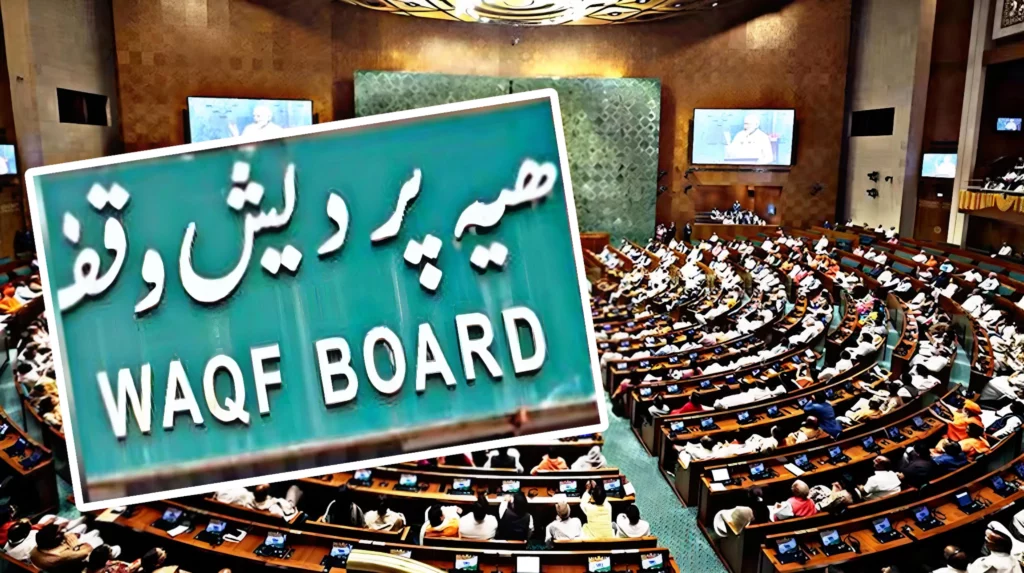The Lok Sabha has passed the Waqf Board Amendments Bill after a 12-hour-long debate, marking a crucial shift in India’s approach to minority welfare. The Bill, championed by Union Minister Kiren Rijiju and defended robustly by Home Minister Amit Shah, is not just another piece of legislation—it is a direct strike against the unchecked power of a privileged few within the Muslim community who have long controlled vast Waqf properties while sidelining the most vulnerable. For decades, Waqf Boards have been dominated by elite Sunni and Shia factions who have used their influence to retain control over nearly seven lakh acres of land. These properties, meant for the welfare of the entire Muslim community, have been leased at throwaway prices, enriching a select few while the poor—particularly the Pasmandas and Ahmediyas—were systematically ignored. Despite their struggles, these marginalized groups had little recourse, thanks to the draconian 2013 amendments passed under the Congress-led UPA-II government. That law granted Waqf Boards unchecked powers, allowing them to bypass Indian courts and decide cases through hand-picked tribunals. It was a blatant mockery of justice, shielding the elite while silencing the oppressed.

The passage of this Bill is, therefore, a much-needed correction. By curbing the arbitrary powers of Waqf Boards and ensuring accountability, the government is not attacking minority rights—it is rescuing them from a feudal grip. Yet, the opposition, devoid of substantial arguments, has resorted to fearmongering. Their cries of “unconstitutionality” ring hollow, especially when the Bill aligns with past rulings from both the Supreme Court and various High Courts. The hypocrisy of the Opposition stands exposed. Lalu Prasad Yadav himself had once warned that Waqf Boards were becoming a threat to land ownership rights across communities. Even recent absurd claims by members of the All-India Muslim Law Board—who suggested that Parliament and the Supreme Court belong to the Delhi Waqf Board—highlight the dire need for reform. And yet, when the time came to fix this injustice, the Opposition clung to its usual rhetoric, offering no real defense beyond political posturing. The passage of the Bill was not just a victory—it was a landslide, with the treasury benches securing 288 votes against 232. Notably absent during the final vote was Rahul Gandhi, the so-called Leader of the Opposition, whose repeated disappearances during crucial debates only reinforce his irrelevance. Instead, Congress relied on a controversial MP facing serious legal troubles, whose Pakistani connections raise troubling questions about foreign influence in Indian legislative affairs.
Now, all eyes turn to the Rajya Sabha. With BJP and NDA allies holding a narrow edge, the Bill’s passage appears likely, especially with strong backing from key allies like the TDP and JDU. But beyond this immediate battle, the larger question looms—what’s next on the BJP-led NDA’s legislative agenda? Many believe the government is now poised to introduce the Uniform Civil Code (UCC), a long-awaited reform that will establish a single set of laws for all Indian citizens, regardless of religion. If pushed through, it will mark the final nail in the coffin of appeasement politics—a practice that has long divided the nation while masquerading as secularism. The upcoming state elections in Bihar and Tamil Nadu will serve as a crucial test, not just for BJP’s electoral strength, but for the larger ideological battle shaping India’s future. The Congress and its allies must now confront a harsh reality: the passage of these reforms signals the end of their outdated politics of selective appeasement. The new Bharats, led by a decisive government, is no longer willing to tolerate injustice disguised as minority welfare. The Waqf Board Amendments Bill is just the beginning.




